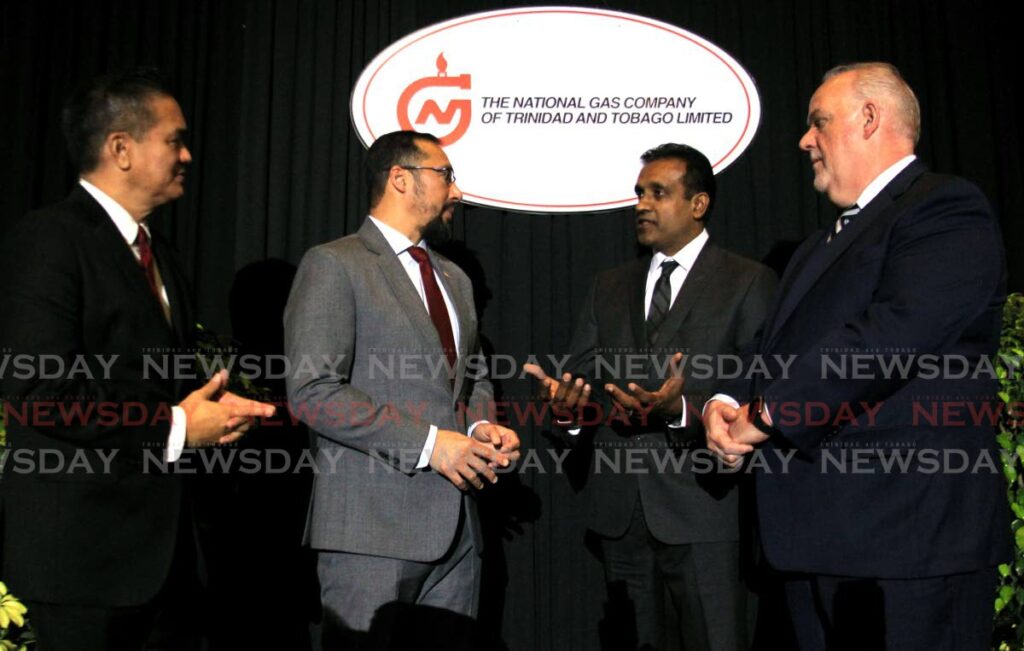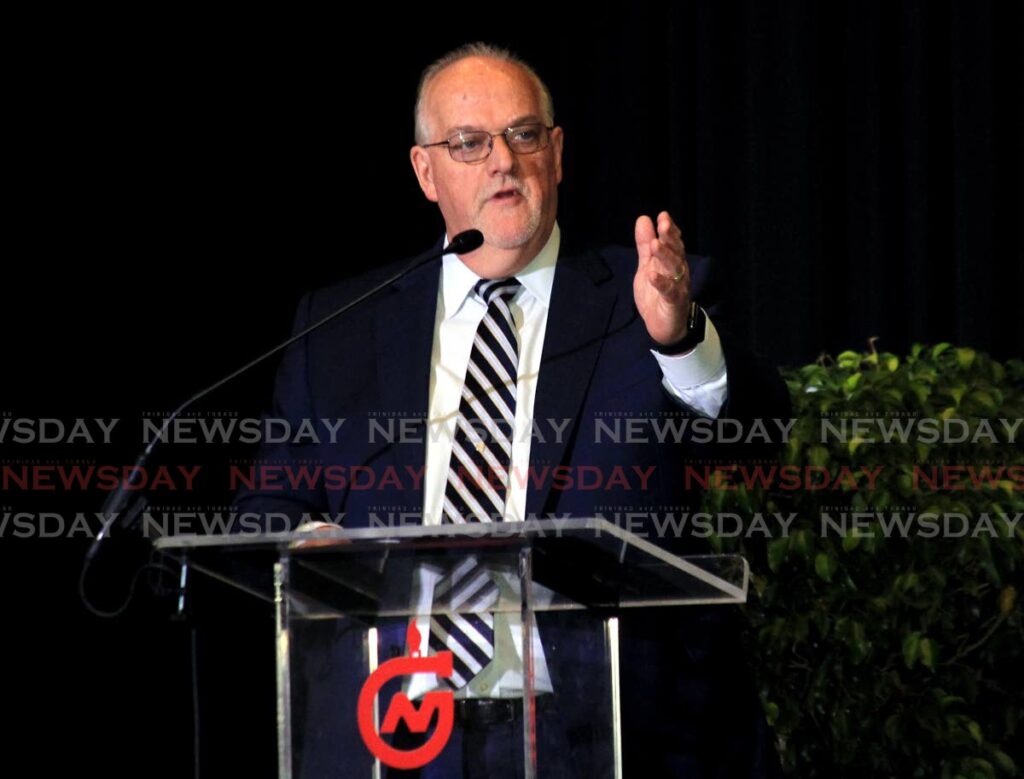NGC AIMs higher with asset integrity management

Asset integrity management (AIM) is a factor that could affect the entire value chain of TT’s oil and gas industry. Proper or improper management of a company’s assets could mean the difference between sustainable and reliable performance of our systems and networks, and complete shutdowns, loss of valuable gas and even loss of life. The majority of undesirable events and issues, if investigated usually leads to a gap in the management of a company’s assets.
The National Gas Company of TT (NGC) since 2015 has been developing it AIM systems, after recognising through an audit by Det Norske Veritas (DNV) – independent assurance and risk management auditors – that much more needed to be done to optimise how it manages its assets.
But on Tuesday after officials of the NGC group of companies, including NGC, Phoenix Park Gas Processors Ltd, National Energy, La Brea Industrial Development Co and NGC CNG, gathered for insight on the latest audit, done in 2022, at the Hyatt Regency in Port of Spain, auditors applauded the group on its steady improvement and encouraged it to aim for even better results as it continues to add value to the group.
Graeme Pirie, president and country manager of DNV TT Ltd, lauded the company’s progress, saying the latest report showed strides in improving its management systems.
Pirie explained that the 2015 audit of more than 30 local companies’ systems, equipment and practices at a rate of zero to four; zero being described as learning and four described as optimising. DNV gave NGC a score of 1.79 out of an average of 2.02, prompting the auditors to conclude that the company was in the implementing phase of asset management.
He lauded the group's success in evolving from 2015 in his remarks.
“Overall the audit scores improved with respect to the prior audit and the scores were close to the average of the 2016 national facilities integrity audit, with the systems rating being slightly above and equipment being slightly below,” he said.
Although the official report has not been released as yet, Pirie shared tidbits of the report which highlighted NGC’s progress.
“The 2022 AIM audit has shown that NGC has, in a relatively short period of time, created the building blocks to become a world-class organisation where process safety management guides the organisation to a sustainable future,” the report said. “In the longer term (three-five years) with continued effort to improve the AIM practices can become effectively implemented. Then after several years of implementation the activities and practices will become more effective and efficient and NGC can move toward the managing stage. Through cycles of updates and revisions NGC will be able to show its continuous improvement.”
Pirie said the improvement demonstrated that, when taken seriously with commitment from all levels of an organisation, asset integrity management is a journey for all.
“(It is) not for the feint of heart,” he said. “But rather for a team of individuals working together, moving forward in the same direction with the courage to face difficulty and challenging or dangerous tasks while safely and proficiently continuing to improve on its asset management systems,” Pirie said.

At the Hyatt on Tuesday, vice president of operations at NGC Ramesh Harrylal explained the importance of asset management on the overall oil and gas industry, saying that the NGC’s assets were integrated and interconnected therefore when something affects one part of the value chain, the entire chain is impacted.
“NGC assets make upstream, mid stream and downstream assets, so an unplanned event that disrupts the gas flow has an immediate impact on the value chain leading to a loss in the sector at a time when every molecule counts.”
According to a 2020 edition of GASCO News, NGC’s 1,000 km pipeline is one of its most valuable assets and one of its greatest liabilities because its expanse, geographical spread – going from offshore to onshore and travelling through various types of terrain – presents multiple degrees of risk.
“Integrity issues could arise that could lead to release incidents, service disruption or even endanger communities,” the report said. “Management of this network, a function of the operations group, is therefore crucial from both a safety and value-preservation perspective.”
Harrylal said NGC set out to establish an asset integrity management framework that was aligned with ISO 55,000 and other best practices. The framework was adopted in 2019 and was built on four pillars which included leadership and governance; administrative management systems; technical management systems and functional execution and performance. The framework also collaborated with other business areas such as human resource, governance, technical document management and supply chain management.
“It is a framework enabled by people, culture and fit-for-purpose technologies that form around key areas,” he said.
The AIM framework developed by the group included maintenance automation through a computerised maintenance management system that assisted with planning and scheduling preventative maintenance works. It also conducted risk-based inspections of its assets.
“This best practice approach focuses on reducing risk by channeling resources and priorities towards inspecting assets in areas that are high risk and prone to failure,” the 2020 report said.
Dealing with process safety management, Harrylal played a major role in the publication of the new US not-for-profit organisation Center for Chemical Process Safety guidelines which guide companies in the management of operational risks. Process safety management (PSM) was also adopted by the group with a focus on risk-based management.
Emergency response and keeping an eye on personal behaviours were also looked at.
NGC implemented emergency response mechanisms such as the virtual emergency operations centre which enables faster mobilisation and enhanced communication whenever disaster strikes. The 2020 report also indicated that it had looked at working closer with the TT Emergency Mutual Aid Scheme, to treat with emergencies such as damages occurring because of hurricanes and earthquakes.
NGC also introduced mandatory training modules on process safety and life-saving rules as part of annual performance plans which would help streamline personal behaviour.
“Mechanisms such as ‘Lets Connect’ conversations and workplace inspections are also utilised to keep safety top of mind,” the report said.
Harrylal thanked NGC president Mark Loquan and other leaders in the group for their continued support in enhancing AIM systems. He added that support from the supply chain was critical in maintaining the systems in place, especially during covid19 when supply chain issues affected all businesses. “Without them none of this would have happened,” Harrylal said. “We have yet to hit optimization but that requires institutionalising all the practices across all the companies and ensuring that all employees understand all the elements that go into maintaining those practices.”
In applauding NGC on its turnaround from the 2015 audit Energy Minister Stuart Young said the NGC group should be an example to other state entities on being self-aware and proactive in its development.
“You can see this applying to WASA and TTEC. We have had our challenges in the electricity sector as well, with power generation,” he said. “Are you properly maintaining your assets? Are you doing what needs to be done? Do you have a maintenance schedule? Are you being proactive and predicting that you should change this piece of equipment or pipeline before something happens? Let that sink in.”
“We have a problem with proper maintenance and that is something that needs to be addressed,” he added.
After his speech he said that not only other companies, but the entire nation could benefit from following NGC’s example.
“We all have to maintain the assets we have,” he said. “At your home you are not waiting for everything to break down at home before we address a situation. If we see a water leak at home, you address it or your keep checking to make sure there isn’t a complete breakdown. It is a culture that we have to get more into as a nation. Let us maintain the things we have. Let’s put in preventative measures. Let’s have routine maintenance across all our assets, and the customer will get a much better result for their money.”

Comments
"NGC AIMs higher with asset integrity management"